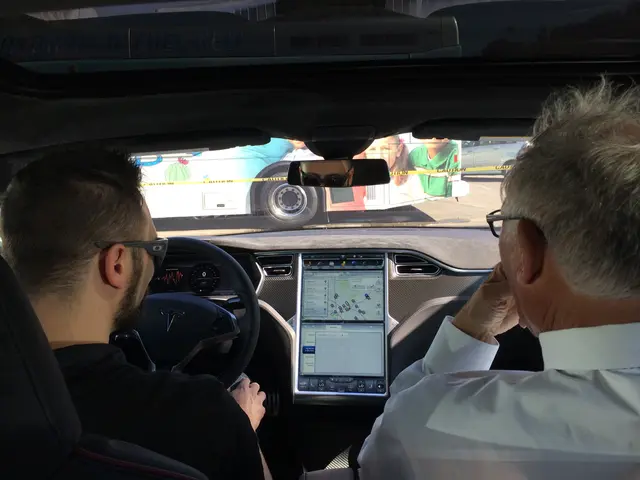Airport in City Mannheim: Government Advances Development of Electrical Aircraft Charging Stations
In a significant stride towards sustainable aviation, the expansion of electric charging stations for aircraft-related operations in Germany is underway, with notable progress in Baden-Württemberg and beyond.
Mannheim Airport in Baden-Württemberg has taken the lead, installing a dedicated electric charging station for aircraft ground operations. This move is part of a larger initiative by the state, which has launched a targeted support program for the expansion of e-charging infrastructure at regional airports.
According to Dirk Eggert, managing director of Rhein-Neckar Airport GmbH, the expansion of charging stations at airports is crucial for the growth of electric mobility for aircraft. He envisions a larger role for electric flying in the coming years, potentially carrying up to 30 passengers in the next five to ten years, which could lead to scheduled flights.
The current focus of electric flying remains on trainees and hobby pilots, as indicated by the presence of an electric aircraft, specifically a Pipistrel Velis Electro, stationed at Mannheim-City Airport-Neuostheim. This two-seater electric aircraft, which is electrically operated, is mainly used by these groups.
However, the lack of charging options elsewhere limits the operations of the electric aircraft in Mannheim. The state's funding program does not specify whether it is only for new charging stations or if it also includes upgrades or maintenance of existing ones.
The funding program does not indicate whether it is specifically for small electric aircraft like the Pipistrel Velis Electro or larger passenger aircraft. Nevertheless, the initiative marks a significant step towards a more sustainable aviation future in Baden-Württemberg.
Elsewhere in Germany, Munich Airport provides a prominent example of large-scale infrastructure expansion. The airport's facility currently has 37 electric bus charging points, plans to add 13 more by summer 2025, and further intends to install 22 additional chargers by 2026-2027, including carports with photovoltaic systems. This expansion is part of the airport's "Net Zero 2035" strategy, aiming at fully electrified, zero-emission apron operations.
Broader goals for airports in Germany include achieving carbon neutrality by 2035, driving infrastructure investments. This shows both concrete progress in Baden-Württemberg, with funding programs and initial installations, and a wider German trend of expanding electric charging infrastructure in airports to support sustainable aviation and ground operations.
In conclusion, the expansion of electric charging infrastructure for aircraft in Germany represents a significant step towards a more sustainable aviation future. The initiatives in Baden-Württemberg and Munich Airport serve as promising examples of the potential for electric flying and the role it could play in achieving carbon neutrality by 2035.
The move towards electric mobility in aviation is not limited to aircraft charging stations; the state's targeted support program in Baden-Württemberg also includes environmental-science research and technology development for the advancement of electric flying.
With the expansion of charging stations at airports like Mannheim, progress in electrical ground operations for aviation technology is being made, contributing to the overall goal of a more sustainable aviation future.








